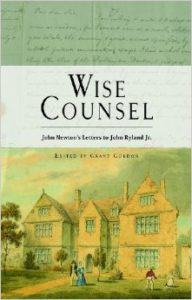Scott Aniol’s writings about music, worship, and culture present a viewpoint that is in need of careful consideration for the health of the church. He brings knowledge of theology and a knowledge of music together in ways that many people on both sides of the debate over worship do not do. Further, Scott grounds his discussions about music in a broader, theologically-rooted understanding of culture and conservatism. I am in fundamental agreement with Scott on these issues, and so I commend his latest book By the Rivers of Babylon: Worship in a Post-Christian Culture along with his other writings on religiousaffections.org.
Despite our fundamental agreements, Scott and I disagree about some matters in the central section of this book. He tends to favor a two kingdoms approach to culture and to take a dim view of Al Wolters’s reformational approach, whereas I have found great value in Wolters and have some serious reservations about the two-kingdoms approach. I thank Scott for having Kregel send me a review copy of By the Rivers of Babylon, and I hope this review serves not only to commend Scott’s book to others but also serves to foster greater agreement between us regarding these two differing approaches to culture.
By the Rivers of Babylon falls into three general sections. The first section, chapters 1-3 evaluates the missional church movement. The second section, chapters 4-7 survey different Christian approaches to culture and present Aniol’s own proposal. The third section, chapters 8-10, focuses on Christian gathered worship. Chapter 11 wraps up with implications and applications. These three areas—missions, culture, and worship—are often discussed in isolation of one another, but Aniol is wise to bring them together one’s view in one area will have implications for one’s view on others.
Missional Theology
The section on the missional church movement provides a brief history along with a summary of missional theology. In doing this survey Aniol recognizes the difficulty of defining missional. The term is used across a wide spectrum of people and organizations that range from theologically liberal to evangelical. The treatment is careful to specify who precisely is under consideration and focuses mainly on the evangelical side of the spectrum. Aniol notes three positive contributions of the missional church movement. First, evangelism is a prominent concern. Second, the missional church movement, in theory, views worship as an activity primarily of believers and rejects the evangelism-centric services of the church growth movement. Third, the missional church movement has recognized that western Christians now live in post-Christian societies. This affects how the church functions in society. It also provides an opportunity to reflect on how the Enlightenment shaped the church in less than desirable ways. Aniol then notes three negative aspects to the missional church movement. First, it takes its critique of the church of Christendom too far, thus rejecting too much of the inheritance that Christians have from past centuries. Second, it too often assumes that culture is neutral and that church practice can be easily adapted to a wide variety of differing cultural forms without loss. Third, it maintains a close connection between worship and evangelism that at times belies its critique of the church growth movement.
Aniol’s evaluation of the missional church movement seems balanced and fair, and I think his concerns are sound. A naïve view of cultural neutrality combined with a substantially negative view of prior church practice both impoverishes the church and leaves it up to cultural corruption. One of Anoil’s most telling observations relates to the difference between the tendencies among missional theologians and practitioners: “The theologians seem to emphasize the fact that culture shapes the church (especially harkening back to the ways Christendom and the Enlightenment shaped the church in the West) and warn against being shaped by the culture in ways that ‘might be compromising gospel truth.’ Most practitioners, on the other hand, tend to minimize the possibility that any culture could shape the gospel harmfully, instead emphasizing the need for the church to engage the culture and redeem it for the gospel” (34-35). If this is the case, then the practitioners are setting themselves up to repeat the errors of the past without reaping its benefits.
Since the missional church movement is concerned to contextualize the gospel within particular cultures, chapter 3 concludes with a survey of changing definitions of culture from culture as high culture to anthropological definitions that recognize that all people groups have a culture. Chapter 4 opens with a survey of the roots of the contextualization idea in the World Council of Churches. These discussions transition to the second part of the book, which examines how Christians are to understand and relate to culture.

 This is a collection of letters, many previously unpublished, from the Anglican minister John Newton to the Baptist minister John Ryland, Jr. The name of John Ryland, Jr. may be unknown to many, but he was one of the rope-holders for William Carey, who is well-known for his pioneer missionary work in India. The letters begin when Ryland is a young man and continue into Newton’s last years of life. The title of the book captures their nature. These are letters of wise counsel from an older minister to a younger. Since they cover such a long span of time, a whole variety of life’s experiences are commented upon. These are well worth reading and meditation.
This is a collection of letters, many previously unpublished, from the Anglican minister John Newton to the Baptist minister John Ryland, Jr. The name of John Ryland, Jr. may be unknown to many, but he was one of the rope-holders for William Carey, who is well-known for his pioneer missionary work in India. The letters begin when Ryland is a young man and continue into Newton’s last years of life. The title of the book captures their nature. These are letters of wise counsel from an older minister to a younger. Since they cover such a long span of time, a whole variety of life’s experiences are commented upon. These are well worth reading and meditation.